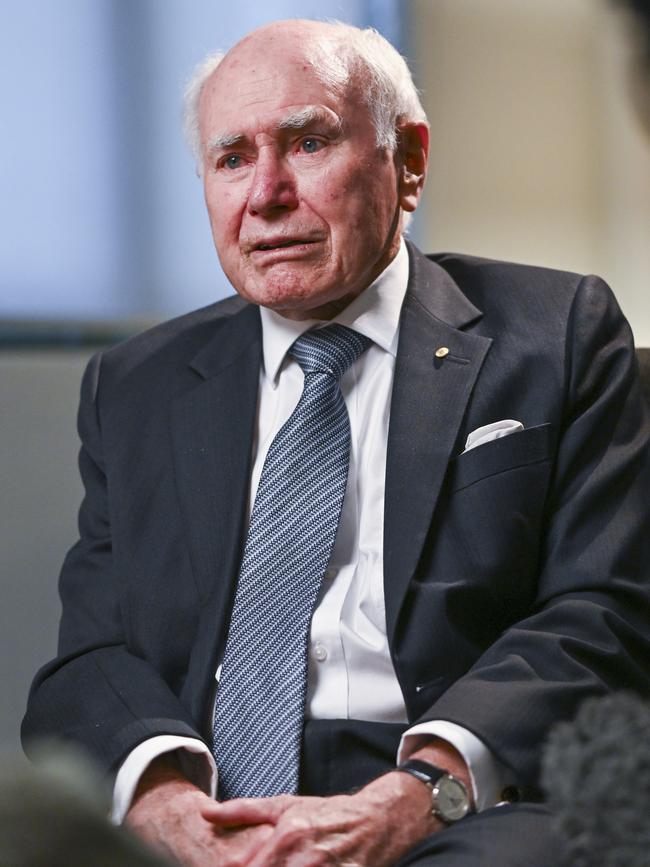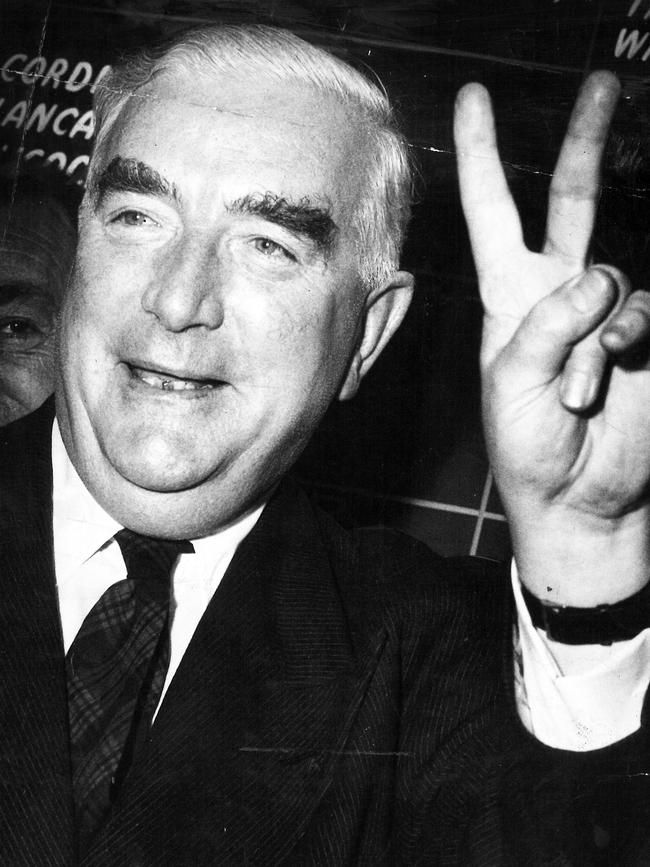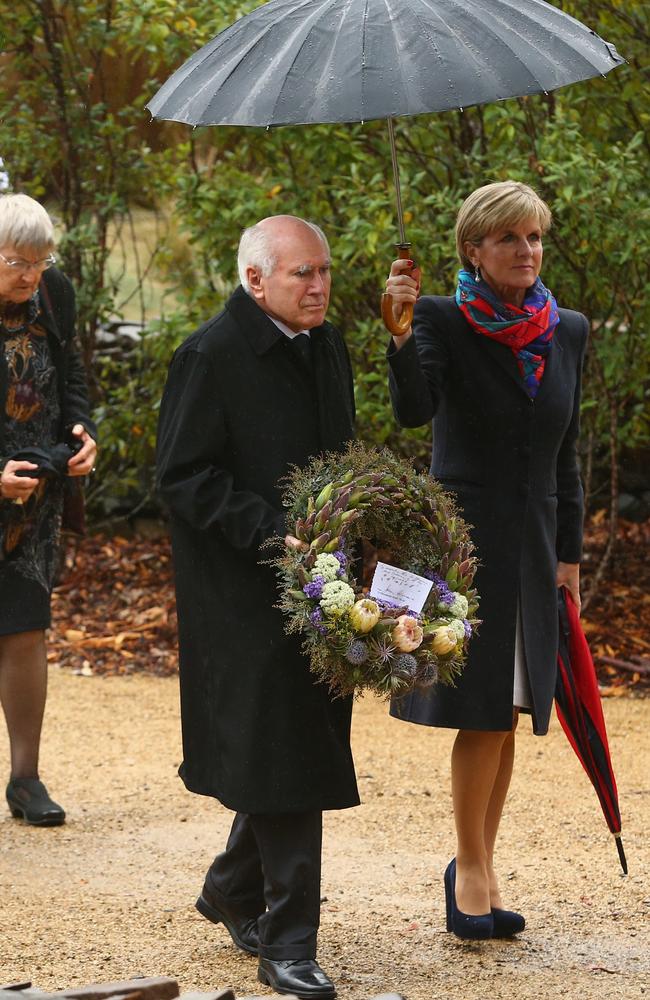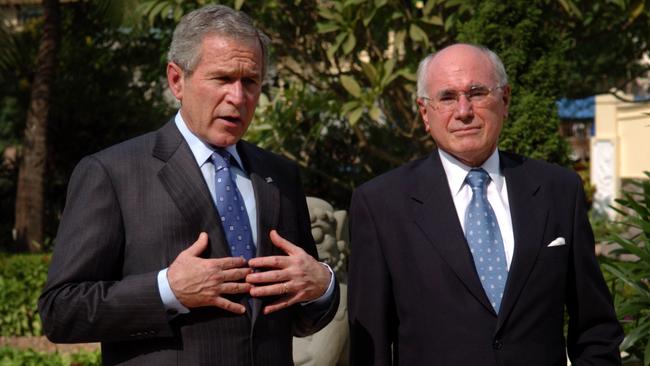Former prime minister John Howard reflects on why he loves being Australian
Former prime minister John Howard has many reasons why he loves being Australian and goes so far as to say that he ‘counts one’s blessings’ that he was born in the land Down Under.
Opinion
Don't miss out on the headlines from Opinion. Followed categories will be added to My News.
Instinctively, one embraces that ancient invocation to “count one’s blessings” when reflecting on the miracle to have been born in Australia.
When asked why they love Australia, most acclaim the openness of their fellow citizens, the social stability, cohesion and mobility, the benign weather or the opportunities in life which have come their way.
“If you work hard in Australia, you can get on” is a common response, particularly from those who have come to Australia as migrants or refugees. The expression “a fair go” best describes what we desire for ourselves and for the future of other Australians.
Having spent recent weeks avidly following an enthralling Test cricket series, I’ll add sport and all that goes with it as a further reason why I love being Australian.
Seen from abroad, those blessings are a massive collective magnet, which has attracted millions to our shores. To me also, there is the wider reality which has been with us since the early years of British settlement. That is, a great sense of balance.

A sense of balance is to be found in every aspect of Australian life. The saying “a fair go” gives colloquial expression to it. We believe very deeply in equality of opportunity – not so in equality of outcomes. Outcomes are in the hands of individuals.
To have been colonised by the British was a huge stroke of good fortune. But we were not mesmerised by it. From the get-go, we embraced the good bits of the heritage those colonisers brought with them, but steadfastly rejected the bad parts.
The civilising ambience of what is now Anglo-Australian law has been part of life from the start. We took parliamentary democracy and other Westminster practices. A free and, where necessary, a boisterous press has held many political and other feet to the flame. Yet we rejected class divisions and any suggestion of an aristocracy.
We have a deep deposit of Celtic scepticism within our being for which we are much indebted to our Irish and Scottish forebears. We are among the least gullible nations on earth. Our scepticism continues to protect us against the blandishments of extremists. Australians rightly see our nation as stable and socially cohesive. We are regularly critical of our governments; but we think our political system works well and are suspicious of attempts to change it.
That scepticism played a key role in the recent defeat of the Voice referendum. Just as more than 70 years ago the Australian people rejected an attempt by Robert Menzies, the most formidable political figure our nation has seen, to ban the Communist Party.
And that occurred at a time when the Cold War was at its height, Mao’s forces had just triumphed in China, and there was justified concern about the large number of key positions in unions held by serving members of the Communist Party.
In a deeply pragmatic way, we have tried what worked and spurned what didn’t.
There is ongoing debate about how best to bring Indigenous Australians into the mainstream of our society. As the referendum outcome showed, a clear majority favour practical measures to deliver a fair go for the First Australians.

Our health system has many faults but is superior to that of the US or the NHS in Britain. It is a skilful blend of the public and the private. Many poorer citizens in America simply miss out in a way that neither side of politics would tolerate in Australia. The National Health System (NHS) in the United Kingdom is struggling under the weight of its own bureaucracy. Covid shone a light on the health systems of the three countries. The death rate to date in Australia is 963 per million of population, against 3544 per million in the US and 3404 per million in Britain.
We in Australia no longer furiously debate which health system is better – public or private. We need both. Moreover, we need them to work together. A feature of Australia’s response to Covid was the relatively seamless co-operation between the public and private health systems.
Unlike our American friends, we have not adopted a Bill of Rights. I hope we never do. In the US, sensitive social issues such as abortion and same sex marriage are decided by courts and not by the people as they should be, and are in Australia. That is so because Americans have a doctrinal approach to human rights and personal freedoms. The law on such matters is tested against the language of the Bill of Rights. In Australia we accept the judgement of the people.

When I told then president Bush that 33 per cent of schoolchildren in Australia were educated in Catholic or other non-government schools he was astounded.
We both strongly supported freedom of parental choice in education, but in his country separation of church and state meant that governments were constitutionally prevented from directly funding such schools. Financial help had to be delivered directly to parents.

The American political system produced, in Donald Trump and Kamala Harris, two candidates who would have been unlikely to be their respective party’s standard bearer in an Australian style parliamentary system. As I write, we are now nearing the end of this overlong hiatus between the election of a president and the inauguration. In Australia, one usually knows from election night who is in charge, apart from a few days grace to allow for cleaning out the office if there is change.
These most recent thoughts must sound like the self-satisfied rantings of someone who was the beneficiary of our nation’s political system. To some degree they are.
That does not rob them of their validity. Most public figures of different persuasions frequently declare that Australia is the best country in the world. The late Bob Hawke certainly did. To the minority who regularly condemn our nation, get used to it – it is!
John Howard was Australian Prime Minister from 1996 to 2007.





